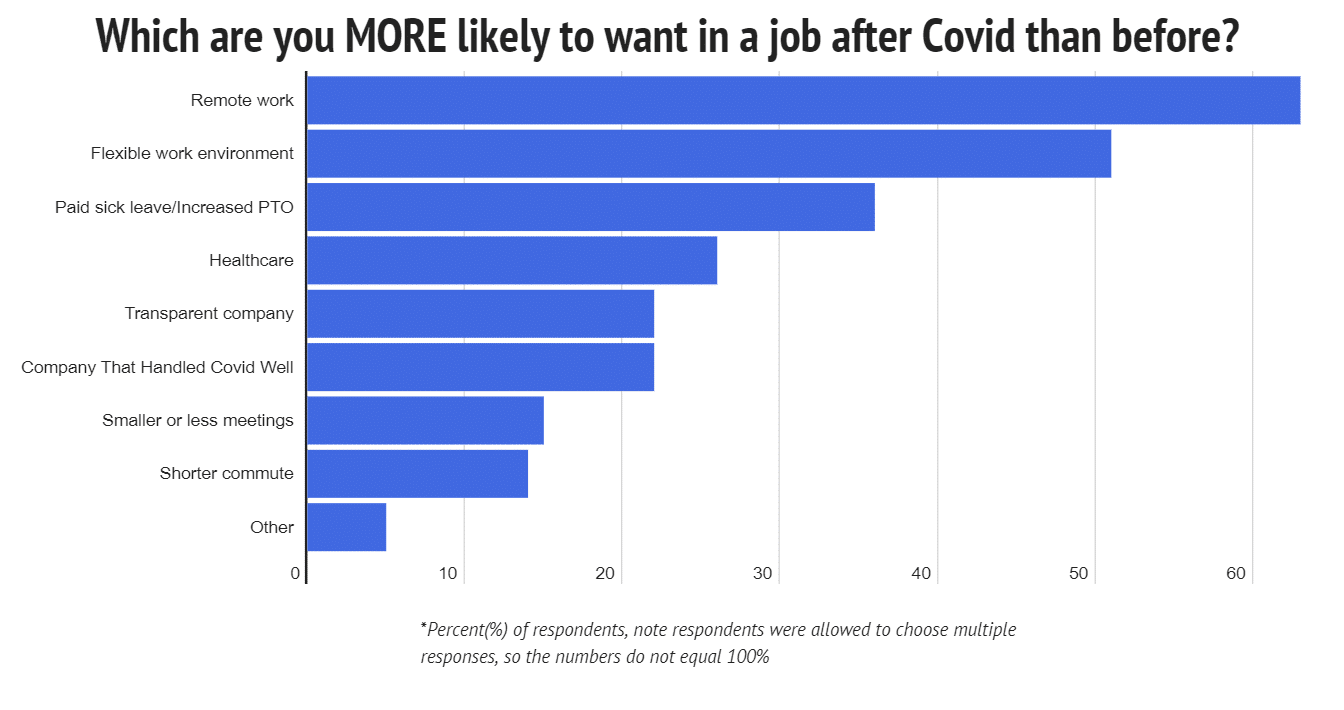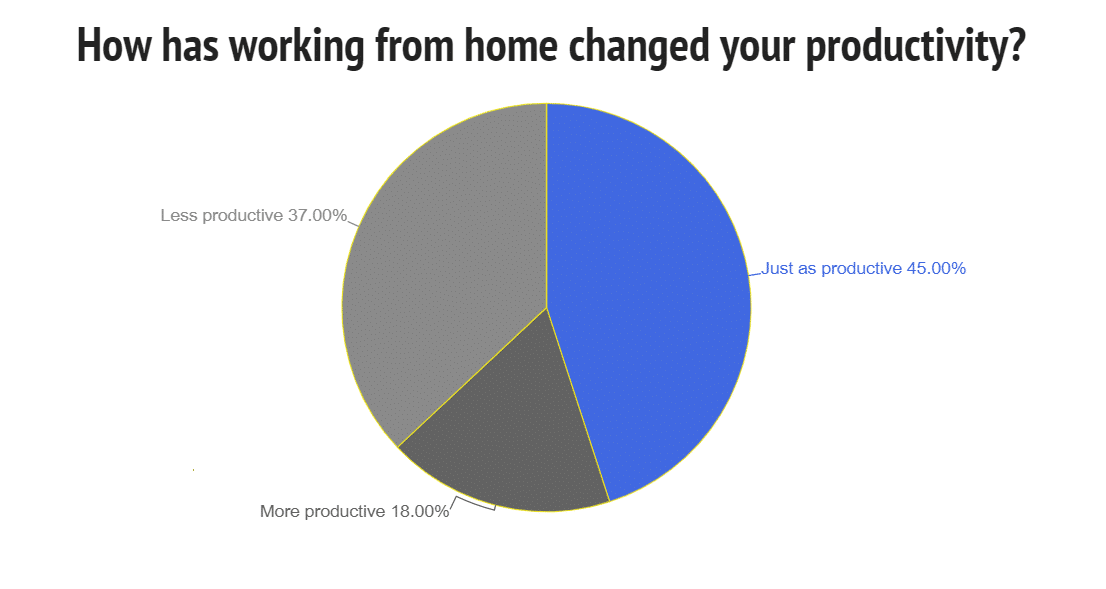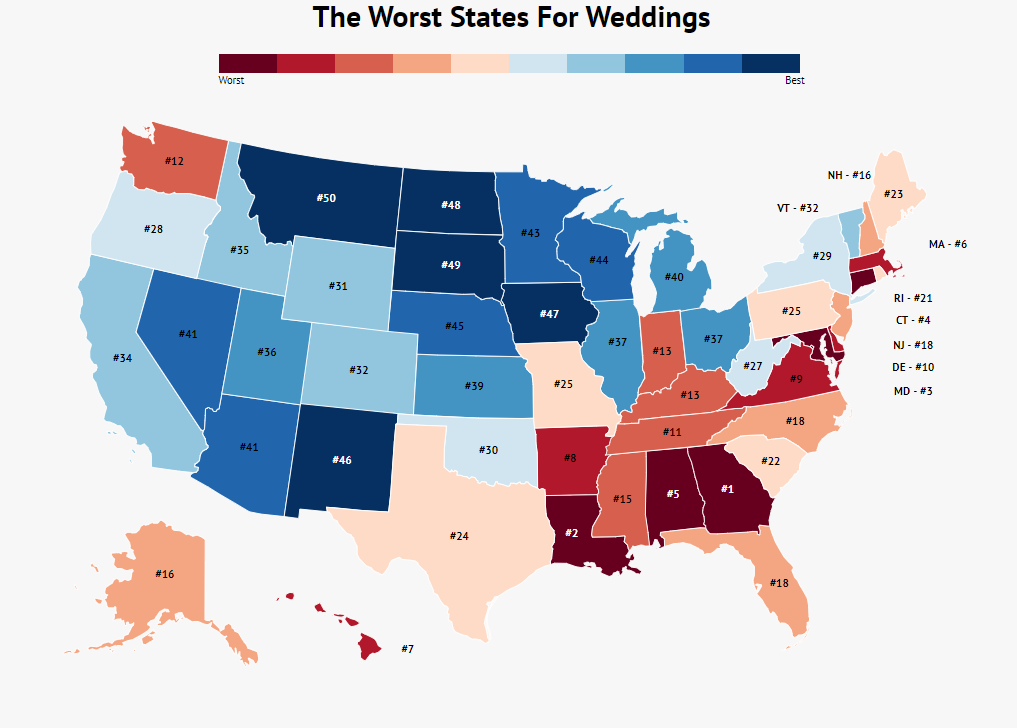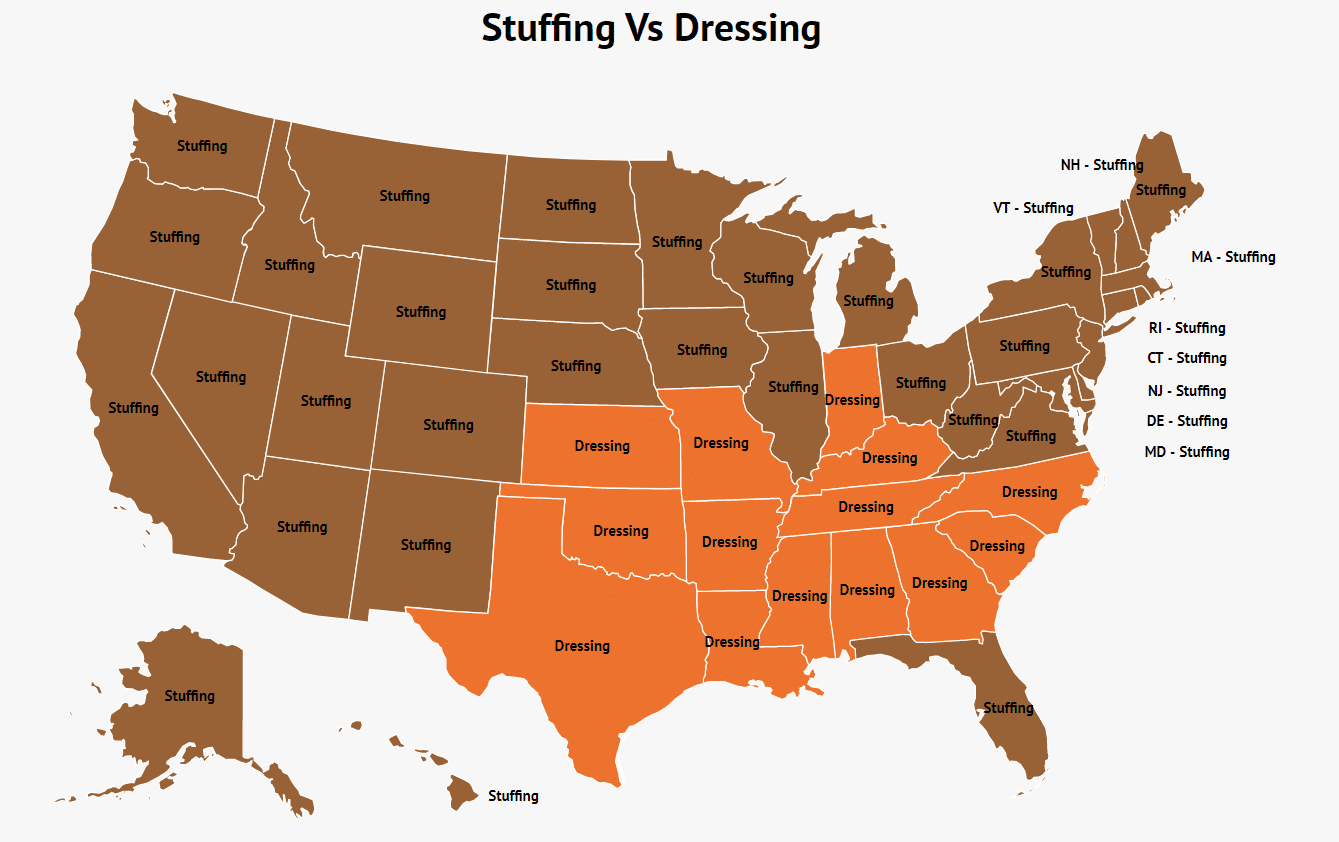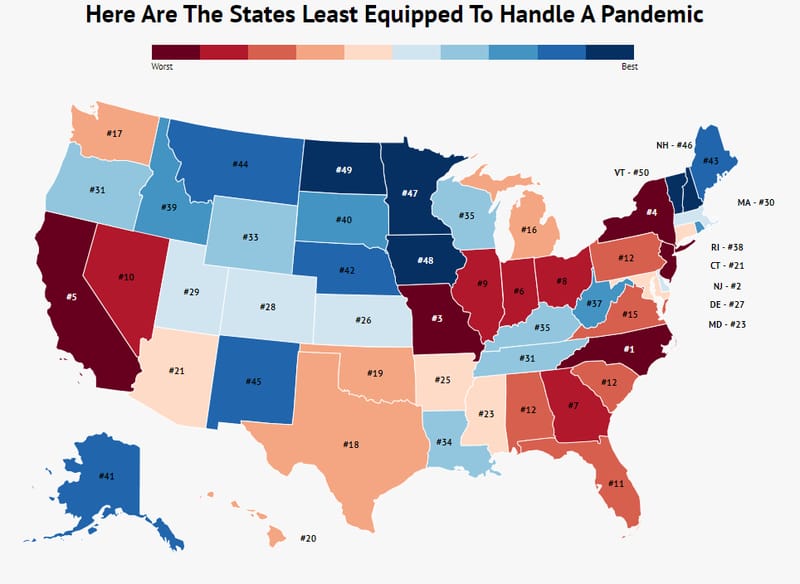Find a Job You Really Want In
- 63% of workers are more likely to desire remote work permanently now
- 1-in-5 workers are working more hours at home than they did at the office
- More than half of workers are as or more productive when working from home
In March, America’s unprecedented, unexpected work-from-home experiment began.
6 months later, many workers are still dialing in from home- many with no end date in sight. Desks have been assembled, kitchen tables turned into offices, and routines established. The question is no longer if Covid will change the way we work, but to what extent the future of work is being impacted by the pandemic.
We surveyed 2000 American workers to see what they want from an employer moving forward, as well as how their productivity and working habits have changed.
Zippia found more 63% of workers want to continue working remotely when all this is over. In addition, the majority of workers state they are getting just as much work done at home as the office- no commute needed.
Below are some additional highlights from Zippia’s survey:
Other Findings
- 37% of remote workers are starting taking advantage of their new flexibility by starting work earlier or later
- Only 18% of workers completely disagree with how their company had handled their Covid response
- Other benefits workers value more than before? Flexible work environment and increased PTO/Sick leave
- 22% of workers will prioritize companies who treated workers good during Covid and avoided layoffs
Covid has changed what employees want from an employer
The majority of workers (63%) have gotten a taste of working remotely and wish to continue working remotely in the future. Following remote work, workers are more keen on flexible work environments and increased PTO and sick leave. These benefits have always been valuable in attracting workers, and the pandemic has only increased their desirability.
However, over 20% of workers will now be favoring companies that are open and honest with workers. More concerning for companies that responded to Covid with massive layoffs and paycuts, over 20% of workers will also be looking to see how future employers treated staff during the pandemic.
We asked survey respondents what else Covid had changed. Here are the most common responses:
- Seeking work in different industries
- More spacious office-space
- Jobs that offer benefit/assistance during furloughs more desirable
- Side-hustle, freelancing, and starting own business to have less dependence on their full-time job
- Seeking companies that front-load PTO, rather than have workers earn it over time
Remote Work’s Impact On Productivity
Mangers and bosses were concerned about a dive in productivity when workers were away from their watchful eyes. However, most workers (45%) are just as productive working from home as in the office. Another 18% are more productive when they are working from home. Workers who are more productive cited a decline in meetings, less office distractions, and the ability to control their environment (including flexible work environments and a surprising number of people who really don’t care for their office thermostat).
However, a not insignificant 37% of workers admit to productivity slipping while working from home. We asked workers what is harming their productivity at home:
What is hindering your productivity?
- Childcare
- Too many virtual meetings
- Technology issues
- Lack of supplies (Computer monitors, telephones, etc)
- Micromanagement
- Salary cuts from Covid
Many of these factors are uniquely caused by Covid, including childcare issues and demotivating salary cuts. Other productivity issues can be resolved by companies proactively supporting remote work environments. You wouldn’t hire a new employee and suggest they bring their own chair and internet to work.
Offering a stipend for workers to mimic their most effective environment could boost productivity drops. Similarly, addressing management issues or a barrage of unproductive Zoom meetings created by the abrupt shift to working remote can increase productivity.
While working remotely has shown it can be highly effective for many workers, it has also highlighted that workers and companies are still evolving. It is also important to remember that workers are “working in crisis” as much as “working from home.” The pandemic has robbed people of everyday comforts; For many parents the pandemic has turned their full-time job into keeping my child alive, while also earning a paycheck.
Methodology
Zippia.com, a career resource website, conducted a study of 2,000 work from home workers across the U.S. on how remote work has impacted their current work
and future expectations from the job market.
The Future Is Flexible
Six months of remote work has shown that the majority of office workers can effectively do their jobs from home. More than do their jobs, many are thriving. They are saving money, time, and are empowered to create a work environment that suits their work style and individual needs.
Many workers admit their own surprise to discover the appeals of working remotely, “I’d prefer working from home for the rest of my life. I never thought I’d say that.” Another explains, “I want to work from home and make my own hours. Pre-covid I never even considered it but now I know it’s possible.”
Remote and flexible work environments were on the rise prior to Covid. The pandemic will only accelerate this trend.
In addition to increased remote work, more workers will seek supportive employers with a track record of doing right by employers. One respondent bluntly stated, “I have no idea what the future will look like…I feel like I can’t just accept a position as easily as before. I demand more from positions because everything feels riskier.”
Covid has changed the way and location of where we work, but it has also changed what workers expect from employers.
